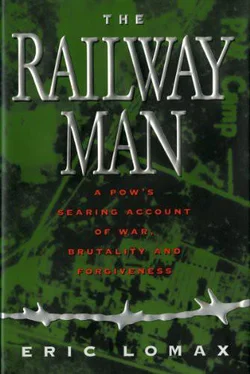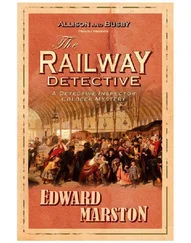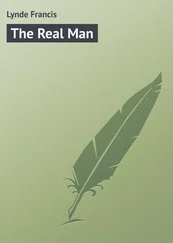Eric Lomax - The Railway Man
Здесь есть возможность читать онлайн «Eric Lomax - The Railway Man» весь текст электронной книги совершенно бесплатно (целиком полную версию без сокращений). В некоторых случаях можно слушать аудио, скачать через торрент в формате fb2 и присутствует краткое содержание. Город: New York, Год выпуска: 1995, ISBN: 1995, Издательство: W.W. Norton & Company, Жанр: Биографии и Мемуары, nonf_military, на английском языке. Описание произведения, (предисловие) а так же отзывы посетителей доступны на портале библиотеки ЛибКат.
- Название:The Railway Man
- Автор:
- Издательство:W.W. Norton & Company
- Жанр:
- Год:1995
- Город:New York
- ISBN:0393039102
- Рейтинг книги:4 / 5. Голосов: 1
-
Избранное:Добавить в избранное
- Отзывы:
-
Ваша оценка:
- 80
- 1
- 2
- 3
- 4
- 5
The Railway Man: краткое содержание, описание и аннотация
Предлагаем к чтению аннотацию, описание, краткое содержание или предисловие (зависит от того, что написал сам автор книги «The Railway Man»). Если вы не нашли необходимую информацию о книге — напишите в комментариях, мы постараемся отыскать её.
is a powerful tale of survival and of the human capacity to understand even those who have done us unthinkable harm.
The Railway Man — читать онлайн бесплатно полную книгу (весь текст) целиком
Ниже представлен текст книги, разбитый по страницам. Система сохранения места последней прочитанной страницы, позволяет с удобством читать онлайн бесплатно книгу «The Railway Man», без необходимости каждый раз заново искать на чём Вы остановились. Поставьте закладку, и сможете в любой момент перейти на страницу, на которой закончили чтение.
Интервал:
Закладка:
I think my mother must have known the chief engineer, because when we were out to sea I was taken to the engine room, from which I was extracted only with considerable difficulty. It was another of my childhood epiphanies: a rapture of hot oil, of enclosure in vibrating energetic metal, the loud rhythmic thunder of the pistons in their cylinders, the warm vibrating air, the smell of burning coal, the ingenious swimming movement of the rods as they moved back and forth. If this was a machine, I wanted to be near one again soon.
We stayed in the Shetland Islands for a month. I remember falling into the sea, and running around half-naked all afternoon while my trousers were spread to dry on a rock in the sun; and playing on a beach at Lerwick and skipping fiat stones over the water. One stone was a piece of bottle-glass, which ripped open the end of my finger. But it was all perfect, the stiff transparent sheen of salt on hot skin and the seaweed smell of the sea. The high ceremonial point of the holiday was the visit to Great Uncle Archibald, who was no less than the Clerk to the County of Shetland. He lived at Lystina House, considered the best address in the whole of Shetland. My mother was immensely proud to be the niece of the top local government officer in the islands, while my father, and I myself, were rather more impressed by Great Uncle Archie’s stamp collection, which was quite magnificent. My curiosity nearly killed me even then. I was taken out with my father by a couple of fishermen in a rowing boat on the Loch of Spiggie, in the south of the island. Insatiably inquisitive, I pulled out the bung in the boat’s hull and held it up. ‘What’s this?’ I asked. I was aware of a spasm of anger and a sudden controlled urgency about the adults’ behaviour. I had done something dangerous. The oarsman pulled for shore, his boat slowly sinking under us.
Shortly after that first visit to the Shetlands in 1924,1 was made to attend the Royal High School in Edinburgh. So far as I could make out, the choice of this school was based not on its 800-year history but solely on the convenience of the new electric tram service and its door-to-door linkage of our house with the school.
For all my later interest in technology, the school did nothing to encourage it: not even physics was taught properly. Our subjects were Maths, English, Latin, Greek and French. It was a deeply traditional academy, and it was difficult to shake it out of its obsession with the classics.
I did not feel that I was a particularly isolated child, but perhaps the habits of the only child made me more aloof, gave me some element of self-sufficiency that others did not need or simply lacked. I avoided organized sports and games, for example, with stubborn determination, a non-conformity regarded as eccentric at a time when team spirit was the key to manliness. I went to a football match, once; I think I played rugby about as frequently; and I occasionally played cricket. On the other hand, I discovered that I could swim exceptionally well, particularly in the sheer hard slogging of long-distance events. I never really discovered what my limit was, but I could swim several miles without pause. This was a solitary and dogged skill, and I loved the drugged rhythm of drawing myself through the water, that strange anaesthetic called stamina sustaining the ache of tired muscles. I was immensely proud, despite being a loner, of the Portobello Amateur Swimming Club badge, even if the regulation colours of brown and yellow made one look like a wasp. This did not save me from persistent pressure, from masters and even other boys, to conform and to put my obvious fitness to use in the rucks and scrums of the rugby field. I would offer to discuss the question over a mile or two in the water, which had a way of silencing my critics.
Because it became with hindsight a premonition of other events, I remember one consequence of slackening my resistance to team activity. I joined the Owl Patrol in the 12th Edinburgh Royal High School Scouts, and wore my brown uniform along with all the other boys. We met weekly in the school gymnasium. One evening in the early 1930s, we were being taught by our scoutmaster to use long staves for crowd control – a most un-scout-like activity, some echo of the General Strike of 1926, or maybe just another of those hints that the world we were about to enter was a place so full of conflict that even games had to be made a preparation for it.
Towards the close of the evening the scoutmaster decided to give us a demonstration. We were lined up as a kind of human barrier, our poles at the ready, while certain other scouts were struck off to impersonate a mob. They were unleashed at us through a suddenly opened door, charging at us wildly in a licensed free-for-all, young bodies crashing into others with good-natured brutality. We could not control them and our troop leader had lost control of all of us. The crush of the attackers caught me with my hand flung out. I can still feel my right arm being bent further and further backwards until it snapped. There was a moment of sheer panic and disbelief, then the shocking pain of the break.
The scoutmaster, resourceful to the last, turned his failed experiment at crowd control into a first aid demonstration. It was not every day that he could show his troop a real broken arm. He snapped a yard-stick in two to make a pair of splints, found some bandages and called for a taxi. When I reached the emergency department of Edinburgh Royal Infirmary I had to wait only briefly before being wheeled into the operating room where I was given a very inadequate anaesthetic: the chloroform barely dulled the crushed nerves. I felt my arm being stretched and manipulated to get the sheared bones back into position. It is strange how easy it is to remember pain.
I did not like the school, and even though I achieved first place in some subjects in my early adolescence – once scoring 100 per cent in a Latin examination – I found the syllabus intolerably dull. Gradually, I lost interest in academic results. I became enthralled by subjects that the Royal High School found it difficult to endorse.
Like many schoolboys, I collected things as a way of making sense of the world’s confusion. In August 1926, my father took my mother and me to Inverness for a few days’ holiday while he was doing some work in the Post Office there. We stayed in the Glen Mhor Hotel on the south bank of the River Ness. He bought a large packet of mixed foreign stamps in the Inverness market to keep me amused. This was a good pacifier of a curious and restless child, but it started the first of my collecting passions, that of philately, which has not left me yet. Later this mania expanded into coin collecting, cigarette card collecting, then the collecting of picture postcards. Fortunately other boys were similarly inclined; fortunately too the raw material was cheap, so building up collections was not a problem. This hunger for all the little circulating tokens of an industrial economy could take in anything, and with us it extended to railway tickets, matchbox covers, autographs and marbles. Compared to the temptations open to children today, ours were not dangerous compulsions, and those parents who tried to wean us off this acquisitive mania would be shocked to see these schoolboy collections now selling for small fortunes.
But these were minor pastimes, mere flirtations, compared to the discovery I made one warm evening in the autumn of 1932 when I was out walking with my mother in the Portobello district. I even remember the precise date: 12th September. We were crossing Park Bridge, a long foot-bridge that spanned a wide cut in the ground between a golf course and a residential neighbourhood. I stopped on the bridge, on an impulse of no importance, and looked down – into a new world. Below me was a shiny heavy web of iron and wood, dead straight parallel lines of metal suddenly curving and merging smoothly into other sets of tracks; ladders fixed to the earth, climbing into the distance. They were spread out and branched off beyond the bridge; close up I could see the worn silver of the rail surface and the dark steel of the chairs and the wood of the cross-sleepers. In the dusk the tracks looked like lines of mercury on the oil-stained timber and gravel.
Читать дальшеИнтервал:
Закладка:
Похожие книги на «The Railway Man»
Представляем Вашему вниманию похожие книги на «The Railway Man» списком для выбора. Мы отобрали схожую по названию и смыслу литературу в надежде предоставить читателям больше вариантов отыскать новые, интересные, ещё непрочитанные произведения.
Обсуждение, отзывы о книге «The Railway Man» и просто собственные мнения читателей. Оставьте ваши комментарии, напишите, что Вы думаете о произведении, его смысле или главных героях. Укажите что конкретно понравилось, а что нет, и почему Вы так считаете.












